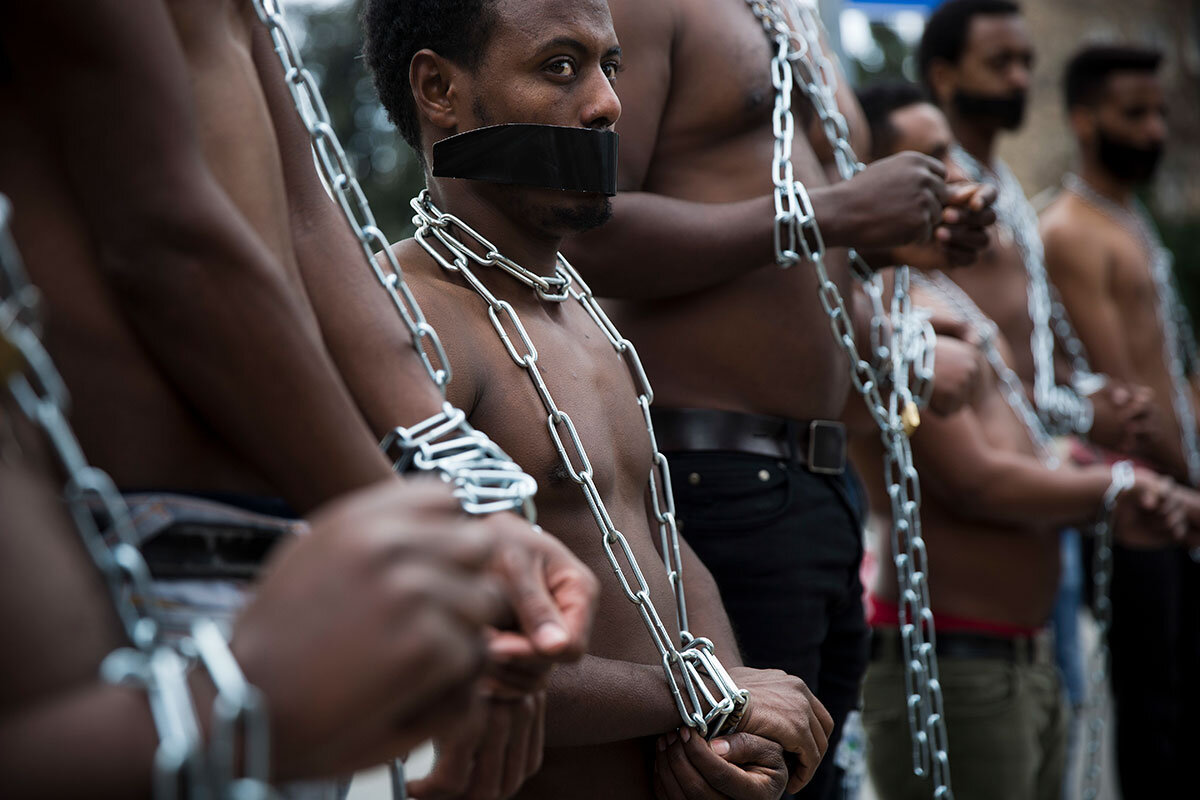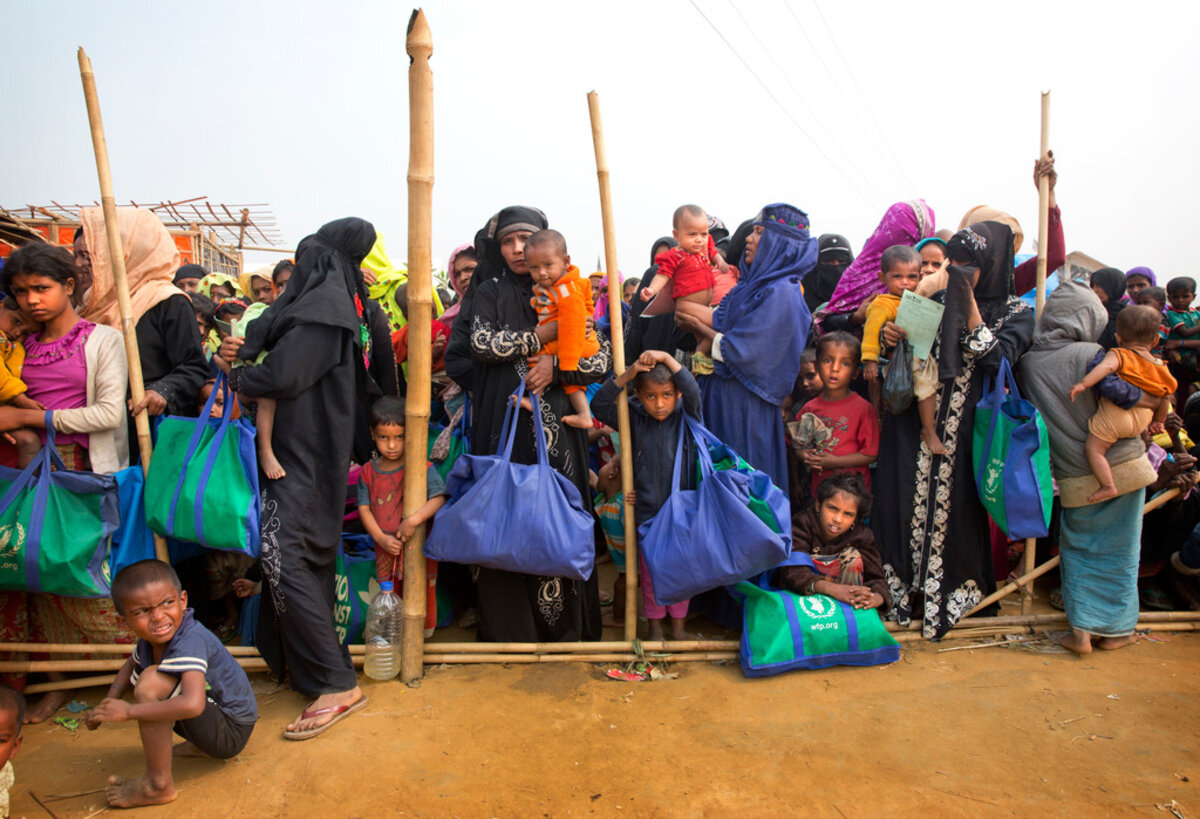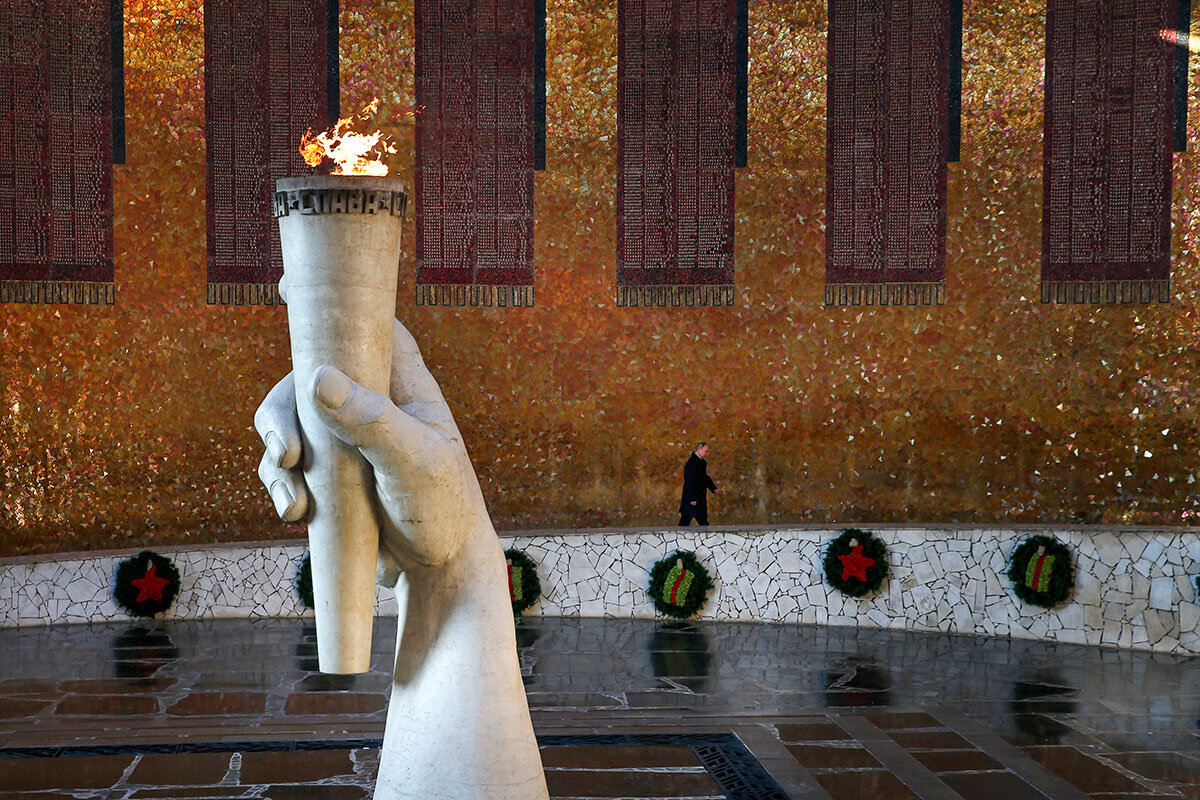The United Nations calls it “the most urgent refugee emergency in the world.” Since August, nearly 700,000 Muslims known as Rohingya have fled violence against them in Myanmar, a largely Buddhist nation. The sprawling camps of refugees in Bangladesh are indeed a catastrophe. Yet the crisis is becoming known for something else just as extraordinary: Aid workers are offering special services to Rohingya women because of the sexual violence committed against many of them.
The services, provided in shelters only for female refugees, assist survivors of rape and other sexual assault to overcome any shame, social stigma, or shunning. The women are offered medical help, of course, but just as important are the mental healing and restored dignity that allow them to better integrate into families and communities.
The techniques are subtle. Survivors are offered “dignity kits” that include soap and other personal aids. Mirrors are placed on shelter walls to remind the women of their beauty. Flowers and other decorations remind them of the beauty of life. Counselors then lead the women in discussions. The goal is to replace feelings of loss, disgrace, and sadness with calmness, safety, and empowerment.
The women may also be taught a livelihood. Many survivors learn to end their silence, thus reducing the culture of impunity and gender inequality, which fuels the cycle of abuse.
Such services are relatively new in the history of conflicts with mass sexual violence, such as Islamic State’s enslavement of Yazidi women in Iraq and Boko Haram’s kidnapping of girls in Nigeria. They were developed with the help of international campaigns over the past decade aimed at turning such acts of terror and humiliation into opportunities to bring peace to individuals and communities – and achieve a victory over the sexual abusers.
“Women’s bodies have always been used as battlefields,” says Dr. Helen Durham, director of law and policy at the International Committee of the Red Cross. “But we need to be clear that sexual violence in war is not something inevitable. It is preventable and we all need to work together to strengthen efforts in prosecution, prevention, and in finding practical solutions to help those affected.”
One initiative started by the British government in 2012, known as Preventing Sexual Violence in Conflict Initiative (PSVI), has trained thousands of security and aid workers on ways to challenge the negative attitudes associated with sexual violence. The techniques are tailored to the cultural sensitivities about women and sexual assault in different cultures and religions. In a document issued last fall called Principles for Global Action, PSVI spells out very specific recommendations. Here are two examples:
•“Reinforce directly and indirectly that all human beings have worth, and being a victim/survivor/child born of rape does not change someone’s inherent value.”
•“Ensure the definition of justice is not narrowed to legal processes and takes account of what the individual victim/survivor considers justice to be (such as reparations, re-gaining employment, community reintegration etc.).”
The idea is to be survivor-centered and reverse traditional thinking about sexual assault. Or, as Tariq Mahmood Ahmad, head of PSVI, puts it, “We must see stigma for what it is – a weapon intended to undermine and prevent social, political and economic recovery for individuals, communities and societies.”
Lifting the stigma of war-time rape is a big step toward ending the use of such a weapon altogether. At the refugee camps in Bangladesh, the women survivors seeking help are not so much victims of rape as they are now heroes of peace.
 Clayton Collins
Clayton Collins











